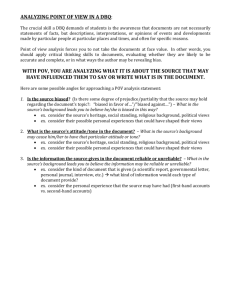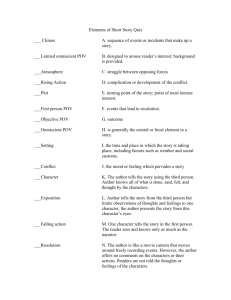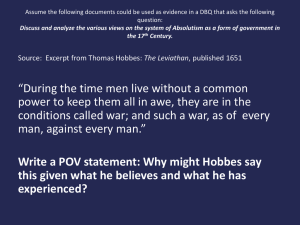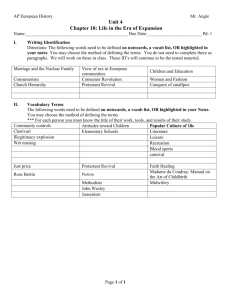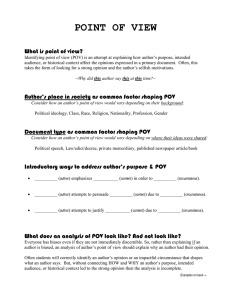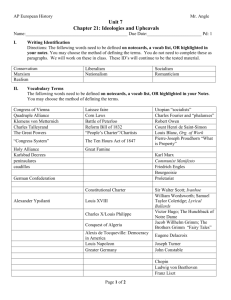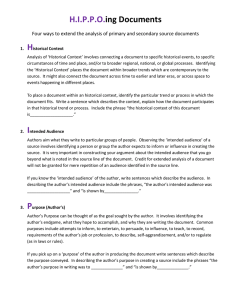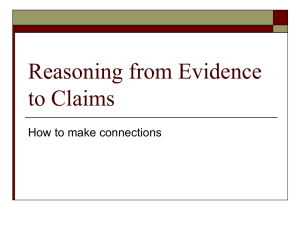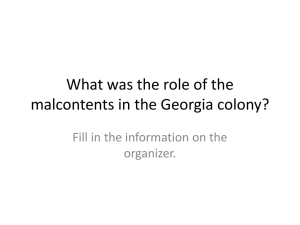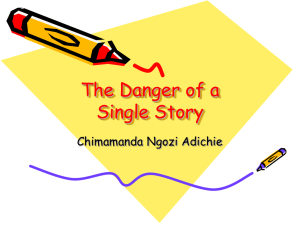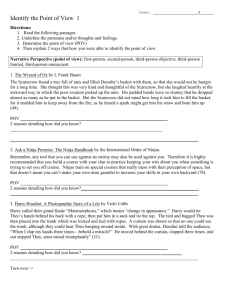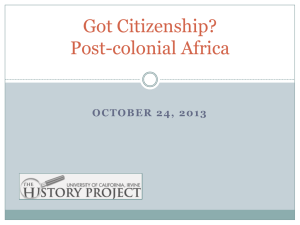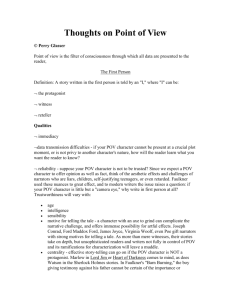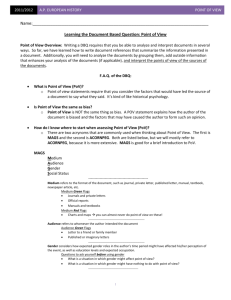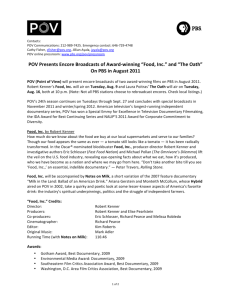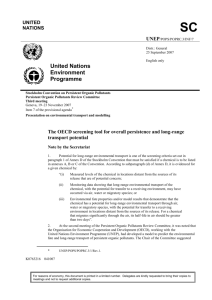Practice for POV Analysis on the DBQ
advertisement
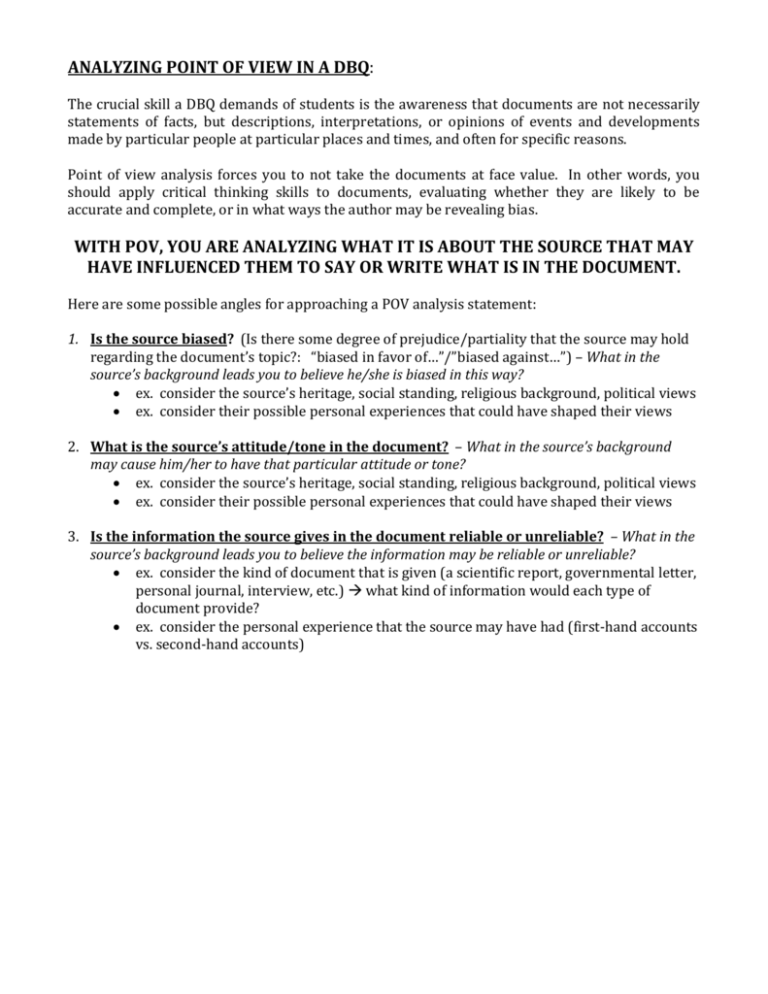
ANALYZING POINT OF VIEW IN A DBQ: The crucial skill a DBQ demands of students is the awareness that documents are not necessarily statements of facts, but descriptions, interpretations, or opinions of events and developments made by particular people at particular places and times, and often for specific reasons. Point of view analysis forces you to not take the documents at face value. In other words, you should apply critical thinking skills to documents, evaluating whether they are likely to be accurate and complete, or in what ways the author may be revealing bias. WITH POV, YOU ARE ANALYZING WHAT IT IS ABOUT THE SOURCE THAT MAY HAVE INFLUENCED THEM TO SAY OR WRITE WHAT IS IN THE DOCUMENT. Here are some possible angles for approaching a POV analysis statement: 1. Is the source biased? (Is there some degree of prejudice/partiality that the source may hold regarding the document’s topic?: “biased in favor of…”/”biased against…”) – What in the source’s background leads you to believe he/she is biased in this way? ex. consider the source’s heritage, social standing, religious background, political views ex. consider their possible personal experiences that could have shaped their views 2. What is the source’s attitude/tone in the document? – What in the source’s background may cause him/her to have that particular attitude or tone? ex. consider the source’s heritage, social standing, religious background, political views ex. consider their possible personal experiences that could have shaped their views 3. Is the information the source gives in the document reliable or unreliable? – What in the source’s background leads you to believe the information may be reliable or unreliable? ex. consider the kind of document that is given (a scientific report, governmental letter, personal journal, interview, etc.) what kind of information would each type of document provide? ex. consider the personal experience that the source may have had (first-hand accounts vs. second-hand accounts) Sample 1 Source: Mr. Keith Gentle, Principal of Lake Norman High School Lake Norman High School is, hands down, the best school in North Carolina. POV Analysis statement for Sample 1: Sample 2 Source: George W. Bush, President of the United States, in an address to the nation, September 11, 2001 These acts shatter steel, but they cannot dent the steel of American resolve. America was targeted for attack because we’re the brightest beacon for freedom and opportunity in the world. And no one will keep that light from shining. Today our nation saw evil, and we responded with the best of America. POV Analysis statement for Sample 2: Sample 3 Source: Dr. Norman Borlaug, United States agricultural scientist, Nobel Peace Prize Winner, Nobel lecture, 1970. In the developing countries,…the land is tired, worn out, depleted of plant nutrients, and often eroded; crop yields have been low, near starvation level, and stagnant for centuries. Hunger prevails, and survival depends largely upon the annual success or failure of the cereal crops. POV Analysis statement for Sample 3: POV ANALYSIS PRACTICE Document 1 Source: Four Bears, Native American chief of the Mandan Tribe, in a speech to his people, 1837 Think of your wives, children, brothers, sisters, friends, and in fact all that you hold dear. All are dead or dying, with their faces all rotten with disease, caused by those dogs the whites. Think of all that, my friends, and rise together and leave not one of them alive. Compose a POV analysis statement that addresses the source’s attitude in document 1: Document 2 Source: excerpt from a diary entry by a resident of Manchester, England, 1830 Whole streets, unpaved and without drains or main sewers, are worn into deep ruts and holes in which water constantly stagnates, and are so covered with refuse and excrement as to be impassable from depth of mud and intolerable stench. Compose a POV analysis statement that addresses the reliability of the information expressed in document 2: Document 3 Source: Viscount Alfred Milner, a British statesman and colonial administrator in South Africa, 1903 The white man must rule, because he is elevated by many, many steps above the black man; steps which it will take the latter centuries to climb, and which it is quite possible that the vast bulk of the black population may never be able to climb at all. Compose a POV analysis statement that addresses the source’s bias:
